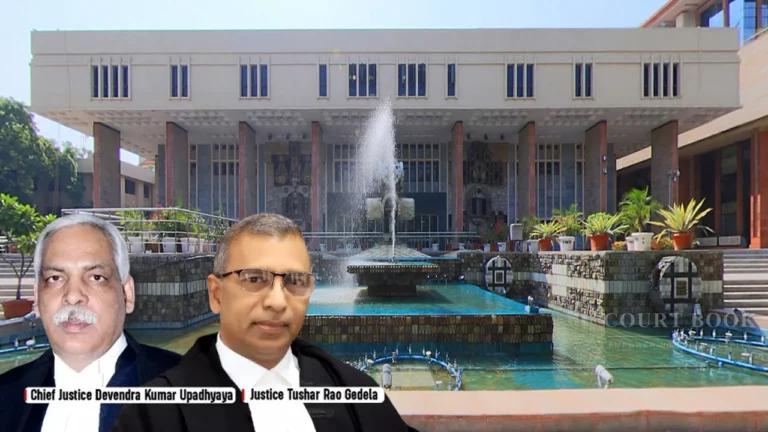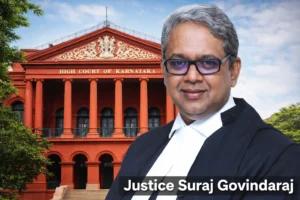The Delhi High Court has made it clear that any eviction order under the Delhi Maintenance and Welfare of Parents and Senior Citizens Rules, 2009 will be considered invalid if a proper show cause notice is not issued as required under Rule 22(3)(1)(iv) and (v).
A division bench of Chief Justice DK Upadhyaya and Justice Tushar Rao Gedela observed that eviction has serious consequences for the person residing in the property. Therefore, it is mandatory that a clear show cause notice be served before passing such an order.
“The person against whom eviction order is passed is suddenly, sometimes deprived of a dwelling space or a space where he may have been carrying on a business or any other activity for earning his/her livelihood,” the Court said.
Read Also:- Calcutta High Court Upholds Automatic Compensation for Dependents of Deceased Workers
The Court emphasized that the District Magistrate (DM) must first form an opinion that the senior citizen is not being maintained, and only then propose eviction, clearly stating the grounds in the notice.
This decision came in the case of Pooja Mehta & Ors v. Govt. of NCT of Delhi & Ors, where the daughter-in-law appealed against an eviction order passed by the DM and upheld by the Divisional Commissioner and a single judge. The DM had ruled in favor of the mother-in-law and her late husband, ordering eviction based on claims of harassment and ill-treatment by the daughter-in-law and her husband.
Read Also:- Delhi High Court Stops Circulation of Deepfake Videos of YouTuber Ankur Warikoo with John Doe Order
The daughter-in-law argued that:
- The property was not ancestral or self-acquired but belonged to a company.
- The eviction order was passed without fulfilling the mandatory rules, especially the show cause notice.
- Under Section 17(1) of the Domestic Violence Act, a married woman has the right to reside in a shared household, even if she does not own the property.
The Court examined both the Domestic Violence Act and the Senior Citizens Act, observing that while both Acts have non-obstante clauses, Section 3 of the Senior Citizens Act gives it overriding effect over other laws.
Read Also:- Supreme Court to Hear Next Week the Plea Against Demolition Notices in Delhi's Jamia Nagar Batla House
“Non-communication of the ground on which eviction order is proposed to be made in itself causes a serious prejudice to the person,” the Court stated.
The Bench ruled that the opportunity given under Rule 22(3)(1)(iv)(v) is not a mere formality. Even if the party has participated in earlier stages, not informing them of the specific grounds for eviction violates their right to defend.
Read Also:- Supreme Court: No Blanket Ban on Witness Statements Under UAPA Without Individual Threat Checks
As a result, the Court set aside the orders passed by the DM, Divisional Commissioner, and the single judge. It revived the proceedings under Rule 22(3)(1), directing the DM to re-hear the matter and pass a fresh decision within two months in line with the law and the Court’s observations.
“The proceedings... are revived and restored to the file of the DM, who is directed to conclude the same... within two months,” the Court ordered.
Title: POOJA MEHTA & ORS v. GOVT. OF NCT OF DELHI & ORS















